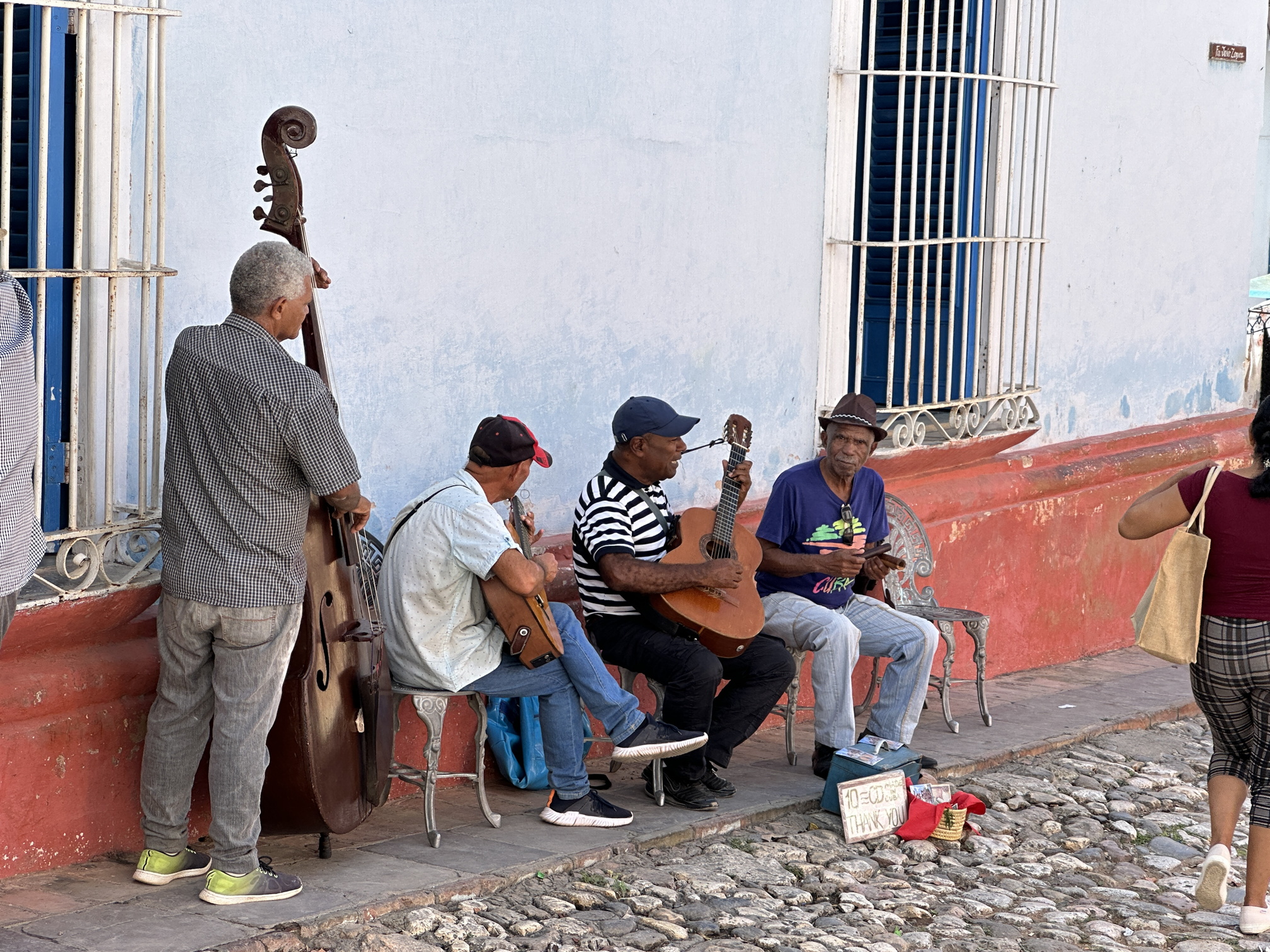Musica En Cuba

Visiting Cuba and not seeing live music would be a shame on its own merits, but it would be a sin for me. If you put a gun to my head and told me I could only listen to one kind of music for the rest of my life, it would probably be Afro-Cuban jazz. This is why:

Amor Verdadero (Guajira-Son), 1997
Classic old school Afro-Cuban son. This album was recorded in the same sessions that produced Buena Vista Social Club, with many of the same musicians.
This is old masters showing the kids how it’s done, swinging like tomorrow might not come after all.

Cuando Te Vea, 1958
Tito Puente, El Maestro, the OG. This album was a massive hit, and was the soundtrack to all your parent’s Cuba Libre-fueled key parties. And that’s why you’re supposed to stay in your room when you’re told.
This track features my favorite trumpet solo of all time, riding on top of that slinky, syncopated clave base.
*Fact check: Tito was an American-born Puerto Rican, but he was still a prime mover in Afro-Cuban jazz.

Esta China, 1980
The band that launched Youssou N’Dour into stardom. I love this track because I always think of Afro-Cuban music as unidirectional, the influences moving from Africa to Cuba. If nothing else, this track proves that things moved in the other direction, too.
I don’t know that the woozy horns are Cuban (they sound more drunken Mariachi to me), but the percussion could have been lifted straight off a classic Tito Puente track.
If those three songs don’t make you want to a) hear more Afro-Cuban jazz, and b) shake your groove thing, there’s no help for you. I mean, I guess we can still be friends…
Maybe.
Anyway, that’s what I had in my head when we talked about going to Cuba. I wasn’t planning on going out every night, but music tourism was absolutely top of mind. Thankfully, we were able to enjoy music from traditional to modern, in venues from bars to concert halls.
The first music we saw was at El Rintintin in Trinidad, which I covered here. That kind of classic sound really sings to me, and I found it again in Habana Vieja. The house band at restaurant/bar La Vitrola right on Plaza Vieja scratched the itch. Not Tito Puente, but that ship has sailed.
Our next concert was concert hall, not bar. It was staged in a beautiful Colonial church, and featured a group of maybe 9-10 musicians doing an overview of Cuban music from roughly the last 100 years. The entire program was excellent, but my personal favorite was a piece by composer/pianist Frank Fernandez, who was in attendance, called Bellas Artes. I can’t find any version of that to share, but here’s another piece by Fernandez that at least gets you close.
The very next night we saw some of the musicians who were in the concert perform as a jazz quartet at a local restaurant/bar. The Ernesto Oliva Band featured Ernesto on piano with a bassist and two percussionists. It was modern jazz built on a foundation of classic Cuban rhythm (although with a hint of 70s Airto).


Finally, we saw Frank Delgado, a beloved Cuban folksinger. His songs were not only catchy, they were obviously well-known, as the audience sang along with almost every number. He’s known primarily for two things: incisive songs that capture the contradictions at the heart of the Cuban experience, and pissing the Cuban government off. I have a hunch those two things might be related.
Attending the concert was kind of weird. Imagine seeing Dylan in a small house, if the US government has worked over decades to suppress his music, you’d never heard his songs before, and you didn’t speak English. So… cool but baffling?
I expected Cuban music to be a highlight of our visit, and I wasn’t disappointed. The range of music on offer was incredibly broad, with so many different approaches to honoring and updating a deep and rich heritage. I hope you follow up on some of this, and join me in the joyous rabbit hole of Cuban music.
Great stuff, thanks for sharing! I have been a tito fan for years but somehow i never thought about him being from cuba
Well, that’s what I get for not doing my homework. Tito was an American born Puerto Rican. He’s so identified with Afro-Cuban jazz he’s commonly mistaken for Cuban, as I did. Still, facts matter. Mea culpa.
a and b definitely!
I had to reach out for a translation, because I’m not very smart. I’d completely forgotten that I’d offered an A and B option in the post. Kids, don’t blog drunk.
A was “hear more Afro-Cuban jazz,” and B was “shake your groove thing.” Wisely, Karen opted for both.